OBITUARY: Jakande, Awo’s disciple who fought for creation of Lagos while in prison
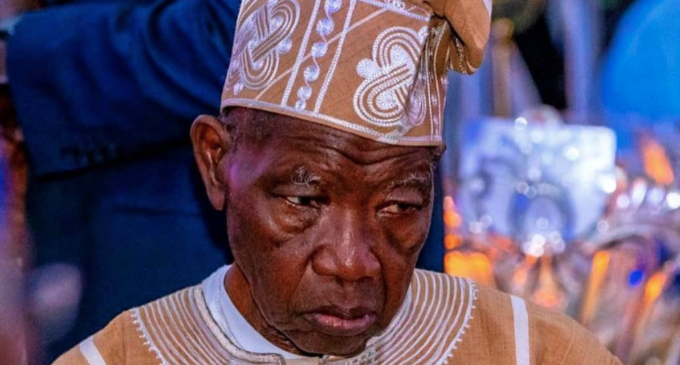
There is a popular Yoruba proverb that goes, “your relations cannot be on the top of a cherry tree while you eat an unripe cherry“. In other words, you have failed as a leader or an influential person if you can’t use your position to improve the lives of people in your community. On October 1, 1979, as Lateef Jakande took the oath of office as the first civilian governor of Lagos state, he was very aware of what lay ahead and acknowledged that his election was “a call to service that I take very seriously in all humility”.
And he meant every word of it.
Four years after, as he bowed out of office in December 1983, his administration left footprints on the sands of time with life-changing projects and policies from education to economy and massive infrastructural development. When he gave up the ghost on Thursday at the age of 91, it felt — still feels — as though he left with a part of Lagos; a state so dear to him that it was seen as his raison d’être.
FOR JAKANDE, LOVE FOR LAGOS CONQUERED ALL THINGS
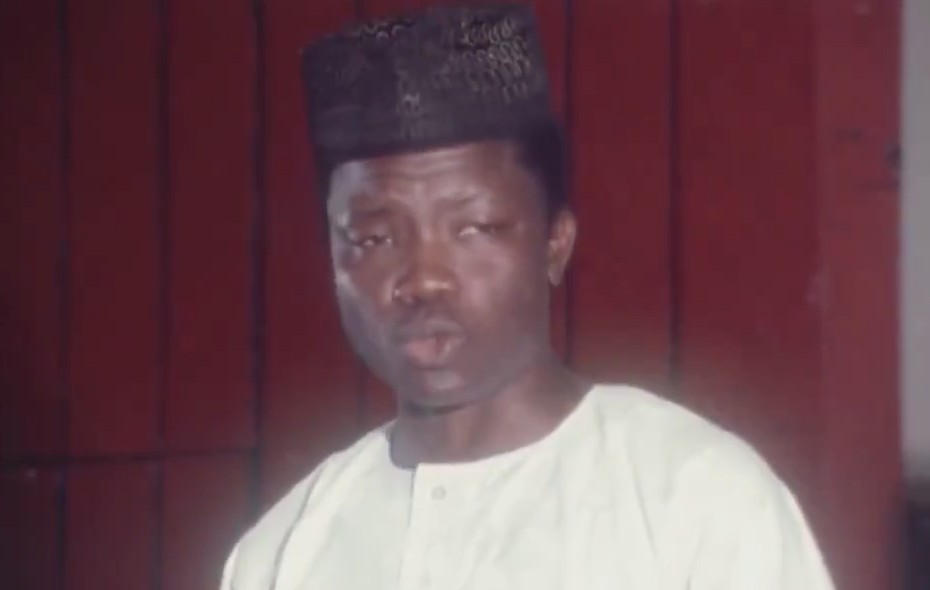
Young Jakande
In September 1963, the federal government prosecuted and convicted him alongside about 15 others, including Obafemi Awolowo, then leader of the opposition in parliament.
During his trial that lasted for about eight months, he was accused of being part of a group that plotted to overthrow the government of then-prime minister Tafawa Balewa and handed various sentences, with Jakande getting seven years.
Recalling his experience, Jakande said that while at the Kirikiri maximum security prison, he concluded that “the time had come to put forward a reasoned case for the creation of a Lagos state”.
He had gone to great lengths to see this dream manifest, working with friends outside the prison walls and “deliberately breaking prison regulation” — and it eventually did, in a booklet he published in 1966 titled ‘The case for a Lagos State’.
The preface of the book partly read: “It seems now to be generally agreed that if Nigeria is to survive as one organic whole one of the conditions precedent to such survival is the creation of new states. I have endeavoured to argue the case for a Lagos State in the following pages as objectively as possible and without emotion.
“One is bound to recognise that this case rests almost entirely on historical circumstances and moral principles. But this does not detract from its validity. A series of historical circumstances have culminated in neglect and injustice such as can only be effectively removed, in a Nigerian Federation, by the creation of a Lagos State.”
Jakande regained his freedom later in 1966 after he was granted a pardon by Yakubu Gowon, then-military head of state who created Lagos state about a year later.
AWO’S GOVERNOR AND DISCIPLE
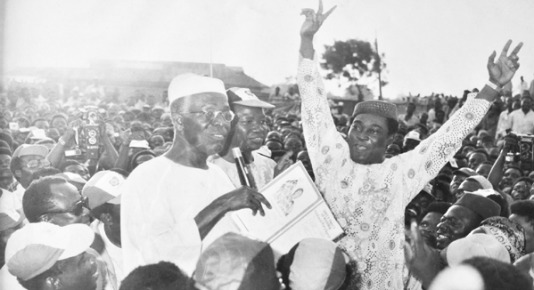
Awolowo with Jakande
Jakande’s relationship with Awolowo was that of father and son as he had worked under the late premier on many occasions from his time in the newsroom to when he walked the corridors of power as governor. They were so close that Jakande was fondly called ‘Baba Kekere’, as in the younger leader following in the footsteps of Awo.
In 1956, seven years after he began his journalism career, he was appointed editor-in-chief of the Nigerian Tribune owned by Awolowo, who reportedly encouraged him to become more active in politics. As a result, after his stormy days at the All Nigeria Peoples Party (ANPP) and the Action Party of Nigeria (APN), he joined the Unity Party of Nigeria (UPN), Awolowo’s party under which he won the Lagos governorship election in 1979.
Speaking of his relationship with Awolowo in a Vanguard interview, he had said: “One thing people do not know about Awolowo was that he was totally committed to public service, all his thinking, even when eating, was all about the people. I followed his footsteps in that direction, he inspired me. I will never forget what I acquired from him in that regard.”
‘NIGERIA WOULD HAVE BEEN BETTER IF AWOLOWO WAS PRESIDENT’
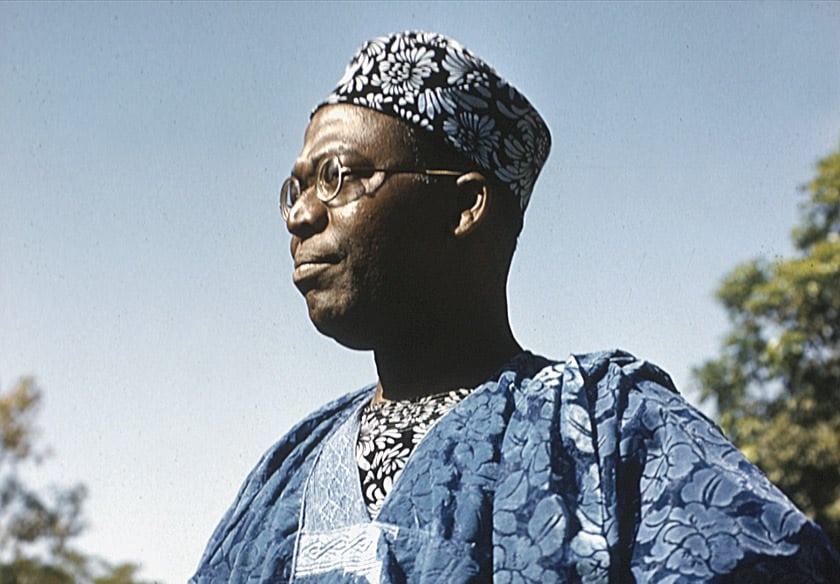
Awolowo
Jakande worked closely with chieftains of the UPN to actualise the presidential ambition of Awolowo, who eventually succumbed to defeat in the hands of Shehu Shagari in the 1979 presidential election.
In the 2009 interview, he regretted that Awolowo’s election loss cost Nigeria a lot and that it happened because of two factors: “The extent of the bitterness of our opponents went beyond what was considered reasonable” and also, “there were powerful elements against him.”
“Perhaps Nigeria would have been a better country if Awolowo had become president but the opponents were powerful and they used their power to stop what I considered to be the best thing we had,” he added ruefully. “If you will recall, Odumegwu Ojukwu, in his stylish way, declared Awolowo was the best president Nigeria never had. That is enough certificate.”
ABJECT POVERTY ‘BELOW MAJESTIC FLYOVERS IN LAGOS’
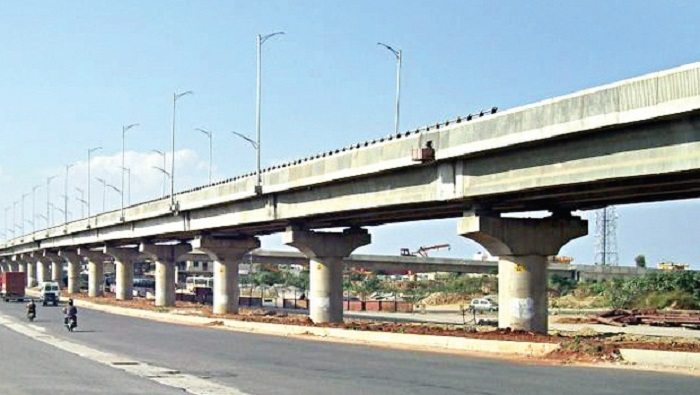
Perhaps in following in the footstep of Awolowo, his political godfather, Jakande set out from his first day in office as governor to, above everything else, look out for residents he said were in “the worst living conditions” in any part of Nigeria.
He had said in his inaugural address: “I know that Lagos State is said to be the most developed part of the Federation. But I also know that below the majestic flyovers, the mystifying ring roads, and the spiralling skyscrapers there is abject poverty in this State. And I know that there are in Lagos State some of the worst living conditions that can be found in any part of the Federation.
“I am sure that it will surprise many Nigerians in other states to be told that Lagos State is as much in need of development as any other State. Perhaps our need is greater. Because of the pressure of population, which is the highest in the country, the demand for services is extremely severe. Besides, Lagos State is Nigeria’s shop window.”
HIS CONTROVERSIAL TIME AS ABACHA’S MINISTER
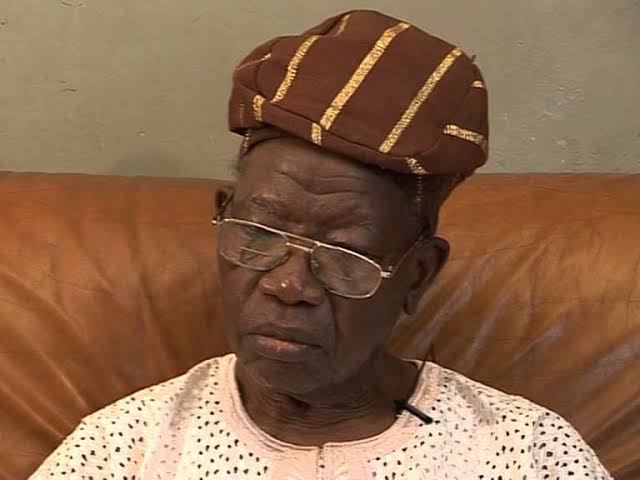
One of the major highlights of his political career was in 1993 when he took up an appointment as the minister of works in the Sani Abacha regime.
For a military dictator that stood against some of what Awolowo had preached and who had denied MKO Abiola victory in the 1993 presidential election, Jakande received backlash over his decision to work with Abacha, but had insisted he has no regret on that.
He once said in a 2015 interview: “Nobody was in doubt that I was in for service. And in fairness to the military, they didn’t put anything in my way. I carried on as if it was the civilian government. So, I have no cause to regret.”
‘ABACHA DID NOT STRIKE ME AS A THIEF’
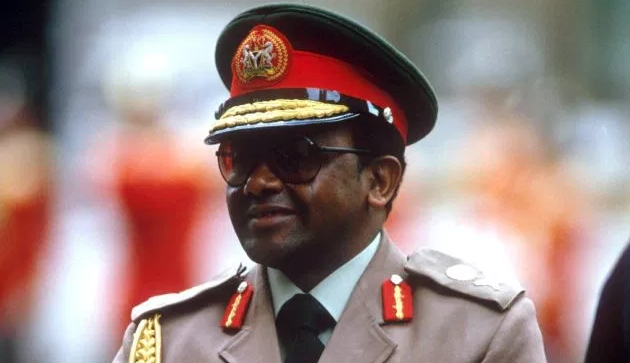
In another interview, he described the request to serve in Abacha’s government as a “divine call to serve”, adding that Abacha “did not strike me as a thief.”
Asked how he would describe the late dictator who Transparency International estimates might have looted as much as $5 billion during his regime from 1993 to 1998, he said: “Quite frankly, whatever happened in that respect happened after I left and I believe that Abacha was well-meant. The first meeting I held with the government, they had not appointed ministers then, Abacha announced that I was the chairman of the economic committee of the government in addition to being a minister of works and housing.
“When I took over as chairman of the economic committee, I ordered serious restrictions. I called down the deficit budget that we had and restricted even the president to awarding contract without due consent and even the consent must be within the limit of the budget. There was a firm budget control.
“He did not strike me as a thief because all the things I brought in were accepted. It must be that after I left, they took him over because these billions of naira they are now talking about, there was no way anybody could have taken even one million out of the public fund at the time I was there, no way.”
WRITER. JOURNALIST. AUTHOR
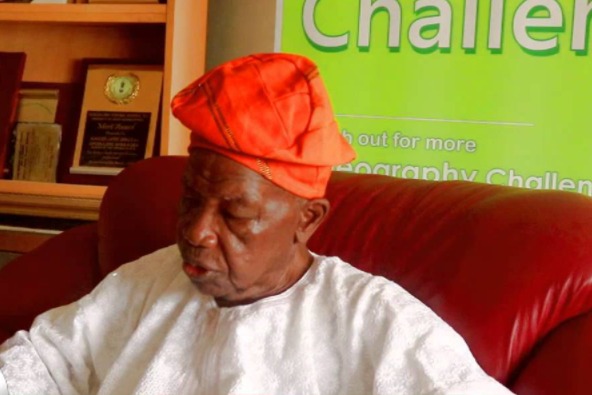
The late Jakande began writing in his early years and at 16, was already an editor. At Ilesha Grammar School where he enrolled for studies in 1945, he edited a literary paper called The Quarterly Mirror, according to the Lagos state government record.
His journalism career began shortly after, in 1949, first at the Daily Service where he stayed for about four years before joining the Nigerian Tribune. In 1956, he was named the newspaper’s editor-in-chief, a position he occupied until 1975 when he left to establish John West Publications, publishers of The Lagos News.
He was also the first president of the Newspaper Proprietors Association of Nigeria (NPAN) and also founded the Nigerian Institute of Journalism (NIJ).
He also authored a number of books including ‘The Trial of Obafemi Awolowo’ (1966) which chronicled the life of the late premier and ‘The Action Years: Experiments in democracy’ (1985) which touched on his life as governor.







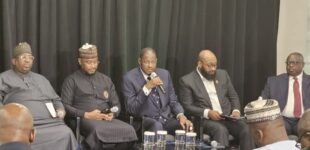
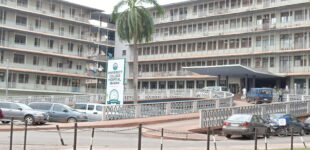




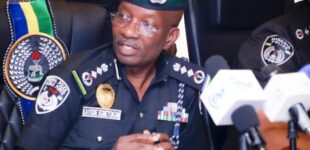
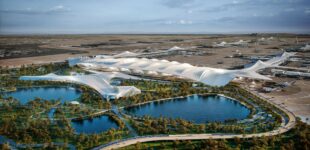

Rip